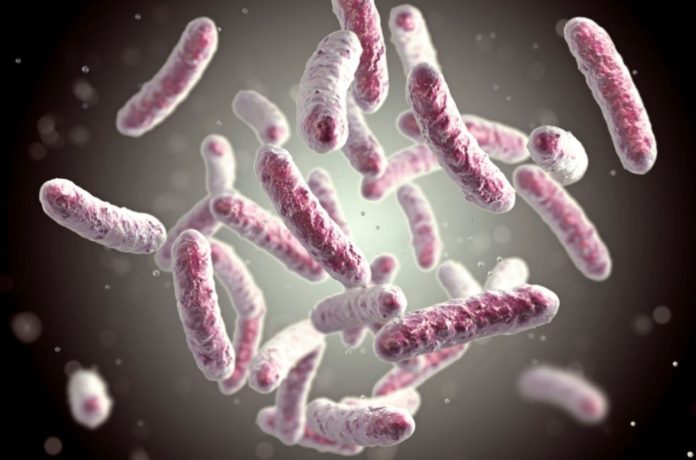As lockdown restrictions begin to lift across the globe, many people will be coming back to deserted buildings that have been left locked for months.
Such buildings have turned into breeding grounds for infections and could be sheltering illnesses such as Legionnaires’ disease.
Professor Anne Clayson, while writing for The Conversation, pointed out that Legionnaires’ disease is caused by inhaling water droplets that contain the Legionella pneumophilia bacteria.
It’s very rare, but lockdown greatly increases the risk of outbreaks.
- Does This Mean We Stopped Being Animal and Started Being Human Due to ‘Copy Paste’ Errors?
- The One Lifestyle Choice That Could Reduce Your Heart Disease Risk By More Than 22%
- Aging: This Is What Happens Inside Your Body Right After Exercise
- Immune-Boosting Drink that Mimics Fasting to Reduce Fat – Scientists ‘Were Surprised’ By New Findings
- Gun Violence in America: What They Don’t Talk About at the Debate
The bacteria can survive in fresh water sources but thrive in water that is warm and still or that hasn’t been properly disinfected.
Outbreaks of the disease are commonly associated with large-scale water systems in hotels, hospitals, long-term care facilities, and cruise ships, according to the Centers for Disease Control and Prevention.
Legionnaires’ disease can cause severe pneumonia and you may have symptoms like fever, dry cough, shortness of breath and muscle pain.
Opposite to Covid-19, Legionnaires’ may not circulate from person to person but can cause large community outbreaks through polluted airborne water droplets.
This could be from sources including showerheads, taps, cooling towers, air-conditioning systems, spa pools, hot tubs, and water fountains.
The disease can be deadly, and can infects multiple people at once.
In 2019, North Carolina saw 124 people contract the disease and four people die after walking past an infected hot tub display.
The bacteria live in warm environments and feed on pipework sludge and sediment.
All water systems are at risk of this contamination, but dormant and decommissioned buildings are especially at risk.
That’s because intermittent use of buildings and equipment and the interruption of cleaning regimes increase the likelihood of water stagnation, which in turn increases the likelihood of a Legionella outbreak.
The end of lockdown could not come at a worse time for potential Legionnaires’ outbreaks.
The Legionella bacteria flourishes in summer months, as the optimum range for the bacteria is between 20-45C.
Even more worryingly, countries that have had some of the most stringent lockdowns – and which as a result will have large numbers of disused buildings – are the countries where this disease is most common.
France, Germany, Italy, Spain, and the UK and Netherlands accounted for 70 per cent of all cases reported in Europe in 2017.
Of those, 10-15 per cent of cases report a fatal outcome.
Meanwhile, the US, which has had widespread lockdowns, has experienced an 800 per cent increase in reported cases over the past 20 years.
This may be due to environmental impacts such as increased rainfall and warmer temperatures benefit the growth of Legionella.
As well as the risk in public buildings, there is also potential for increased domestic exposure as a result of the coronavirus pandemic.
Consumer buying trends report hot tub sales are surging – one online seller reported a 1600 per cent increase in demand during lockdown.
As the North Carolina example shows, hot tubs can become a breeding ground for Legionnaires’ when they are not cleaned or disinfected properly.
Legionella can rapidly become a public health problem in everyday places such as offices, schools, colleges, healthcare settings, and factories.
Employers are legally required to protect worker health from Legionella infection in most jurisdictions.
As countries exit lockdown, a comprehensive assessment must be made of all water systems in premises before anyone returns to work.
Effective water management programmes in buildings, facilities and plant will eliminate this public health threat.
Increasing commercial and public awareness of Legionella controls is critical in long-term disease prevention.
- Does This Mean We Stopped Being Animal and Started Being Human Due to ‘Copy Paste’ Errors?
- The One Lifestyle Choice That Could Reduce Your Heart Disease Risk By More Than 22%
- Aging: This Is What Happens Inside Your Body Right After Exercise
- Immune-Boosting Drink that Mimics Fasting to Reduce Fat – Scientists ‘Were Surprised’ By New Findings
- Gun Violence in America: What They Don’t Talk About at the Debate
National and local publicity on Legionnaires’ disease risks when returning to work and leisure, along with guidance on the safe re-opening of buildings should help to reduce the likelihood of disease outbreaks.
Image Credit: Getty
